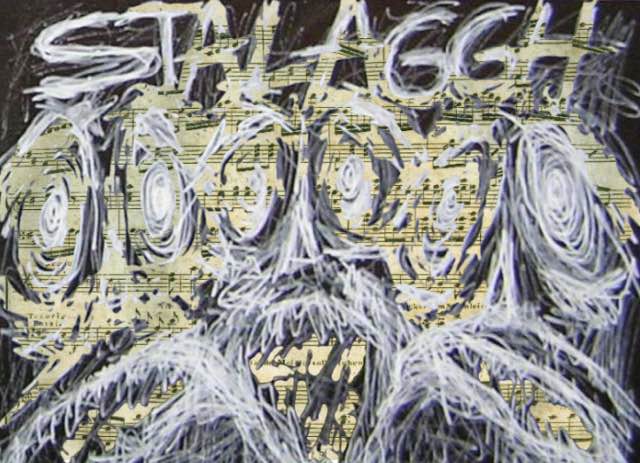amalgamation to its most impenetrable territory
Classical music and heavy metal have actually been intertwined since the latter’s inception. Geezer Butler, legendary bass player for foundational proto-metal band Black Sabbath, even connects the riff of “Black Sabbath” from their 1970 self-titled debut — which essentially started heavy metal — to Gustav Holst’s “Mars, the Bringer of War.”
Neo-classical guitar heros like Yngwie Malmsteen and operatic vocalists like Judas Priest’s Rob Halford and former Killswitch Engage singer Howard Jones clarify this influence, but Finnish all-cello quintet Apocalyptica and Britain’s symphonic goth chart-topper Nightwish integrate the polarized movements to an astoundingly natural effect. However, as the accessible sides of both styles begin gaining traction, a nameless strain of underground artists has taken the amalgamation to its most impenetrable territory.
Composers like Peter Edward Burg use atonality and noise to accentuate emotional impact, as exemplified by “Moon Spell.” Melody and meter give way to controlled chaos and calculated dissonance. Having shared a desire to push boundaries and offend the senses, many extreme metal musicians have taken 20th-century ideas into their approach. In spite of its controversial history, black metal remains a breeding ground for bands incorporating classical principles — as exemplified by Norway’s Emperor and Minnesota’s Obsequiae — but outliers have begun modernizing.
A man named Maurice de Jong, better known as Mories, began his musical journey in 1988, but his earliest known releases date back to the early ‘90s. His full artistic vision remained dormant until he formed Gnaw Their Tongues in 2006. Deriving its name from Bible verse Revelation 16:10, this project specializes in nightmare symphonies.
coating of dissonance and distortion
Many of his releases lean more towards avant garde metal, but listening to his side of a split LP with Los Angeles noise grinders Actuary makes it clear that Mories meticulously orchestrates his audible torment. Whether he plays the plethora of instruments and sound makers or samples them may never be known for sure, but the countless layers of lurching filth never become nonsensical. Mories places each coating of dissonance and distortion exactly where he needs it, resulting in rapturous surges through paranoid dread. The anonymous Dutch and Belgian madmen behind the truly agitating Stalaggh and Gulaggh projects — which allegedly feature the wails of actual mental patients over discordant ambience — adopt a similar approach.
While the likes of Gnaw Their Tongues nod to modern classical, Missouri-based madman Adam Kalmbach has truly crossed the threshold of no return with his project Jute Gyte. Like Mories, Kalmbach began making music under this motichur 11 years ago. With 35 releases under his belt, he has had plenty of time to realize his potential. Listening to 2016’s “Perdurance” makes his stance quite clear, injecting counter-meter, microtones, free improv and more into the most extreme elements music imaginable.
In an interview with No Clean Singing, Kalmbach reveals that his songs are often based in a guitar tuning or created scale. The arrangement comes from his ability to make sense of something completely insane, which ironically makes his music even more alien at times. Whether he plays 20-minute atonal drones or black metal with no linear tonality or meter, Kalmbach hans wholeheartedly embraced the eccentricities of two genres.
When approaching the seething underbelly of experimental music, one understand that it does not want to be liked. Much of it exists entirely to reconstruct notions of acceptability from the ground up. For every opus that tickles one’s dormant sensory regions, a plethora will surely upset and befuddle, but those who stick it out through the harrowing journey may find the most unexpected rewards.







